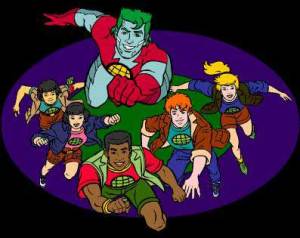I feel like this should be the soundtrack to my final blog post of the semester and for Prof Davis’s sake, I will try and keep it short.
I was glad to choose the local food movement because there were so many factors that were involved in the “buy fresh, buy local” movement. I tackled issues concerning factory farms vs family (organic) farms, the increasing prevalence of a meat-based diet and how this effects CAFOs, the effect that our food system has on the corn industry, the environmental and health effects for humans due to CAFOs, and what I believe to be the most important, the advancements that local farmers have made in producing the most food/acre while using “green-er” methods.
There were many more interrelated topics I chose to delve into, some humorous, some not, but at the end of the day (*sports cliche*) I feel like I have made a life change. I also hope that I have encouraged others to consider where their food comes from.
That is where I started my blog and was a theme I wanted to highlight through various blog posts. We should ALL know where our food comes from- how it makes it from field, pasture, or dirt/feces farms to your grocery store and eventually to your plate. This stuff does matter. We cannot ignore the environmental impact of factory farms because they affect whole ecosystems- earth, water, wind, fire, and heart (Captain Plant joke, sorry, prof Davis).
In all seriousness, factory farms are not a sustainable method to feed America and the rest of the world. We need to protect our grasslands, rivers, streams, air (CO2 emissions), and especially our animals. We are raising them to be bred for our benefit and maximize their use. It would be like if America was forced to take steroids, vitamins, minerals, and hormones so we could all be bigger, stronger, smarter for the corporations in which we are employed (I exclude the NFL, MLB, NBA, NHL, and lets throw in track and field and cycling for good measure).
We are messing with mother nature and you know she can be a vengeful woman. Let’s make amends in any way we can. Support Farmer’s Markets or local grocery stores such as Friendly City Food Co-op. Avoid fast food if you are able to financially and if it is merely a luxury for you and those around you.
I know I will continue, to the best of my abilities, to persuade others to put a dent in the success of factory farms by supporting local farmers and in turn, their local communities.
Take care, Professor Davis! Thanks for a great semester


![barry-bonds-photo1[1]](https://richaram1.files.wordpress.com/2011/05/barry-bonds-photo11.jpg?w=640)
